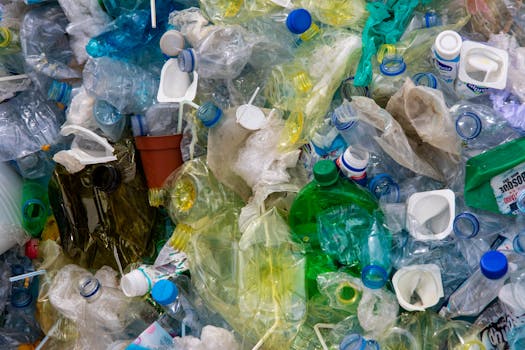happpy.news is an open source project, made with ♥ by reuben armstrong
and powered by this advert ^ from charity.marketing
In Nigeria, an innovative approach to waste management involves building houses with plastic bottles. This method is not only environmentally friendly but also offers a solution to the country's housing crisis.

In recent years, Nigeria has faced a dual challenge: a significant waste management problem and a growing housing crisis. However, a creative solution has emerged that addresses both issues: constructing houses from discarded plastic bottles. This innovative approach not only contributes to environmental sustainability but also provides affordable housing options for many Nigerians.
Plastic waste has become a pressing concern in Nigeria, with millions of plastic bottles ending up in landfills and waterways each year. According to a report by the World Bank, Nigeria generates approximately 2.5 million tons of plastic waste annually, which contributes to pollution and public health issues. By repurposing these bottles into building materials, communities can reduce waste and create something valuable.
The process of building with plastic bottles is both innovative and practical. These bottles are filled with sand or other materials to create sturdy, insulating bricks that can be used in construction. This method not only utilizes a resource that would otherwise contribute to environmental degradation but also provides a cost-effective building material. In a country where traditional building materials can be expensive, using plastic bottles offers a more affordable alternative.
Several organizations and local communities have begun to adopt this method. One notable initiative is led by the Eco-Architects Nigeria, which focuses on creating sustainable housing solutions using recycled materials. Their projects demonstrate how communities can come together to build homes while engaging in environmentally friendly practices. By using local labor and resources, they also stimulate economic activity in the areas where they operate.
The social impact of building with plastic bottles is profound. Many of these projects involve training programs for community members, teaching them construction skills and promoting environmental awareness. This not only empowers individuals but also fosters a sense of community pride and ownership. Residents are not just passive recipients of housing; they take an active role in building their homes and improving their neighborhoods.
In addition to addressing housing and waste issues, these initiatives have the potential to raise awareness about recycling and environmental conservation. As more people see the benefits of repurposing plastic waste, there is hope that it will inspire broader changes in behavior towards waste management across Nigeria. Education campaigns and workshops can further amplify this message, encouraging citizens to adopt more sustainable practices in their daily lives.
Moreover, the government's support for innovative building projects can play a crucial role in scaling this solution. Policies that incentivize sustainable construction practices and support community-led initiatives could lead to a significant reduction in both plastic waste and the housing deficit. As more stakeholders become involved, from local governments to international NGOs, the potential for growth in this sector is vast.
In conclusion, Nigeria's innovative approach to building houses from plastic bottles offers a promising solution to two of the country's pressing challenges. By transforming waste into housing, communities are not only providing shelter but also fostering a culture of sustainability and environmental responsibility. As more individuals and organizations rally around this cause, there is hope for a cleaner, greener, and more inclusive future for Nigeria. With creativity and collaboration, the country is paving the way for a brighter tomorrow.
Source: Reuters